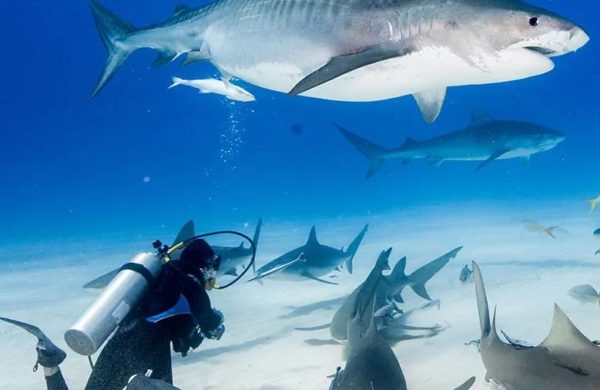A monster lionfish measuring nearly 18 inches long set a new single-fish size record for the REEF Lionfish Derby series Saturday in Key Largo.
In the largest Key Largo Winter Lionfish Derby ever, 48 underwater hunters on 14 teams fanned out at dawn to remove 420 lionfish from Florida Keys waters in the one-day contest.
READ MORE: The lionfish: King of the ocean no more?
The winning team from the Islamorada Dive Center returned with 181 lionfish, which topped the previous Key Largo Winter Derby record (161 lionfish).
Also turning in big harvests in the fifth annual contest were runners-up Fancy Feast Killaz squad with 97 lionfish and the Lion Reapers with 97 of the unwanted invasive fish.
The team from Ocean Divers bagged the biggest lionfish, recorded at 452 millimeters. That’s “the largest lionfish that has ever been turned in at any official REEF Lionfish Derby,” said Emily Stokes, a lionfish-program staffer with the Reef Environmental Education Foundation, based in Key Largo.
A researcher from the University of Pennsylvania attended the contest to examine and analyze the stomach contents of harvested lionfish, which are considered a major threat to native fish species including snapper and grouper, along with other reef fish.
Lionfish, a Pacific Ocean species, defend themselves with an array of venomous spines and have no significant natural predators in Atlantic waters. A lionfish will eat anything that fits in its mouth and can reproduce throughout the year.
Some reefs in the Bahamas have lost from 65 percent to 95 percent of the native fish to lionfish in a two-year period, Oregon State University biologist Stephanie Green reported.
“Regular removals and removal events such as derbies have been found to significantly reduce lionfish populations” at local reefs, Stokes said.
Samples of lionfish ceviche were given away at the Key Largo contest, hosted by Sharkey’s Pub & Galley, to promote awareness of lionfish as a tasty seafood treat.
Major sponsors for the REEF Winter Lionfish Derby includeed the Florida Keys National Marine Sanctuary, the Florida Park Service, Florida Fish and Wildlife Conservation Commission, ZooKeeper and Divers Direct.



